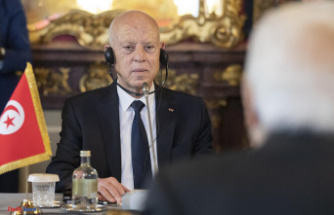After weeks of negotiations, leaders of the European Union agreed to ban 90% Russian oil imports by 2023. Russia will continue to be able sell millions of barrels per day of oil to the EU. Some of the proceeds will still go to funding the war. This fuel has impeded a dignified, univocal condemnation of Ukraine's invasion and continues to hinder the EU's response.
This is an important lesson for Europe and the rest the world: Independence from Russian energy is the only way to avoid another Ukraine.
France, where I reside and work as an energy researcher at Foundation for Strategic Research in Paris, was unique among EU countries in demanding swift, firm action. Despite the fact that Emmanuel Macron, French president, took a tough stance against Russia in his election campaign, France's relative oil and gas independence made it much easier. France's 70% nuclear-generated electricity comes from consistent investments in nuclear energy.
This has drawn criticisms, especially after the Fukushima Daiichi disaster in Japan in 2011. German policymakers instead call for a gradual transition to electricity from a mixture of renewable energy sources, coal, and gas.
The West has yet to develop a strategy for nuclear power because of its squeamishness in investing in nuclear power. This is due to Fukushima and the Chernobyl catastrophe in 1986 which occurred in what is now Ukraine. In 2001, the Generation IV International Forum was established. It was the last attempt to establish a global agenda for nuclear research. The forum was forgotten after the Fukushima disaster.
A few countries have made progress in their nuclear technology. Russia is responsible for more than 30% of all new reactors in the world, mainly in Eastern Europe, Middle East, and the Indian subcontinent. China builds about 30% of the reactors, with most of them built in China.
The new nuclear technologies are more efficient and flexible than the ones that existed at the time of the Generation IV forum. These small modular reactors, which can have a combined capacity of 300 megawatts, are very promising. Because they can be changed module by module, they offer flexibility in plant design and maintenance. They could be used in conjunction with green power to fill any gaps in their capacity.
The fundamentals of nuclear technology are more important than ever, in both the physics and the potential for industry change. Fast neutron reactors can produce fission of many heavy elements. This could eliminate the need for uranium to be the only fuel source and nuclear waste. These are only a few of many fourth-generation nuclear reactors that can overcome the limitations of existing installations.
Russia and China are the only countries currently operating commercial power plants with these technologies.
The EU is at risk of falling asleep in a world where Russia holds a technological grip over nuclear technology and physical control over large amounts of Europe's fossil fuels.
The world could move away from fossil fuels that are high in hydrocarbons. Nuclear technology could speed up the transition towards cleaner power sources and end the hold of undemocratic states on the energy markets. However, building a nuclear power station takes time. A country might need to build its nuclear power plant over a period of ten years, especially if it uses new technologies. Construction of Beloyarsk-4 started in 2006. Operations began in 2016.
It is essential to have long-term vision, a steady public support and political willpower. This can be both domestic and international. This willpower is essential to allow the development of fourth-generation technologies in democratic countries. It must be stronger than any single electoral campaign or political term.
Many countries in the West have both experience and know-how in international cooperation. They must work together to create a framework for commercial operation of fourth generation power plants. This will foster energy independence and ensure that citizens are informed and safe about modern commercial nuclear power stations.
This cooperation would send positive signals to the financial sector and the nuclear industry that countries are serious about developing nuclear energy. This signal would encourage funding for new investments in nuclear technology and stimulate construction. It would also be a boon for a sector that has been stagnating since Fukushima. This private interest should be accompanied with greater public investment in this sector.
Only after a thorough consultation with the public on issues such as safety, mining, and waste management can engagement in this major nuclear policy be made.
The West must achieve permanent energy independence to avoid another similar situation as in Ukraine. Green technologies may one day be able to achieve this, but we can't afford to wait.












